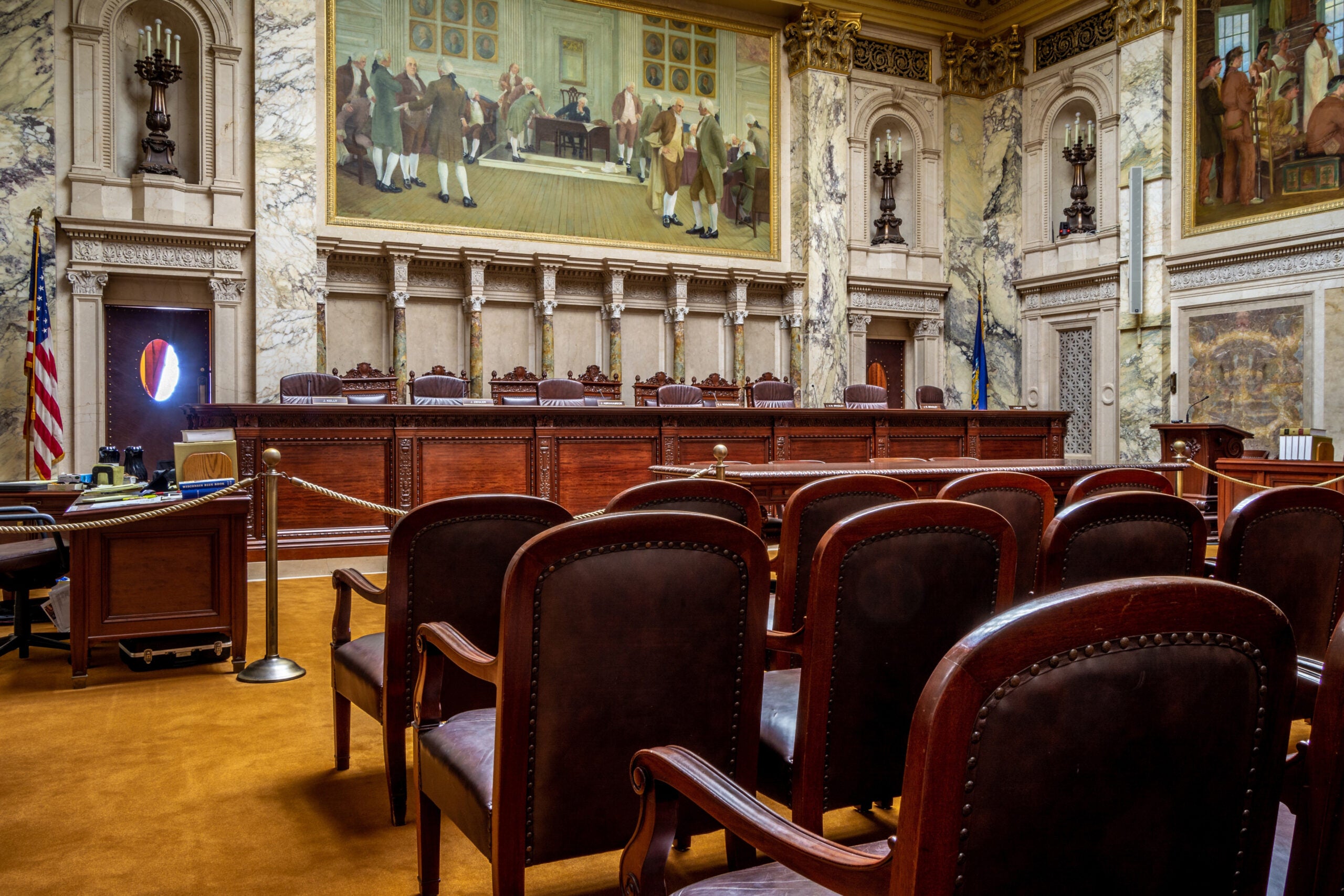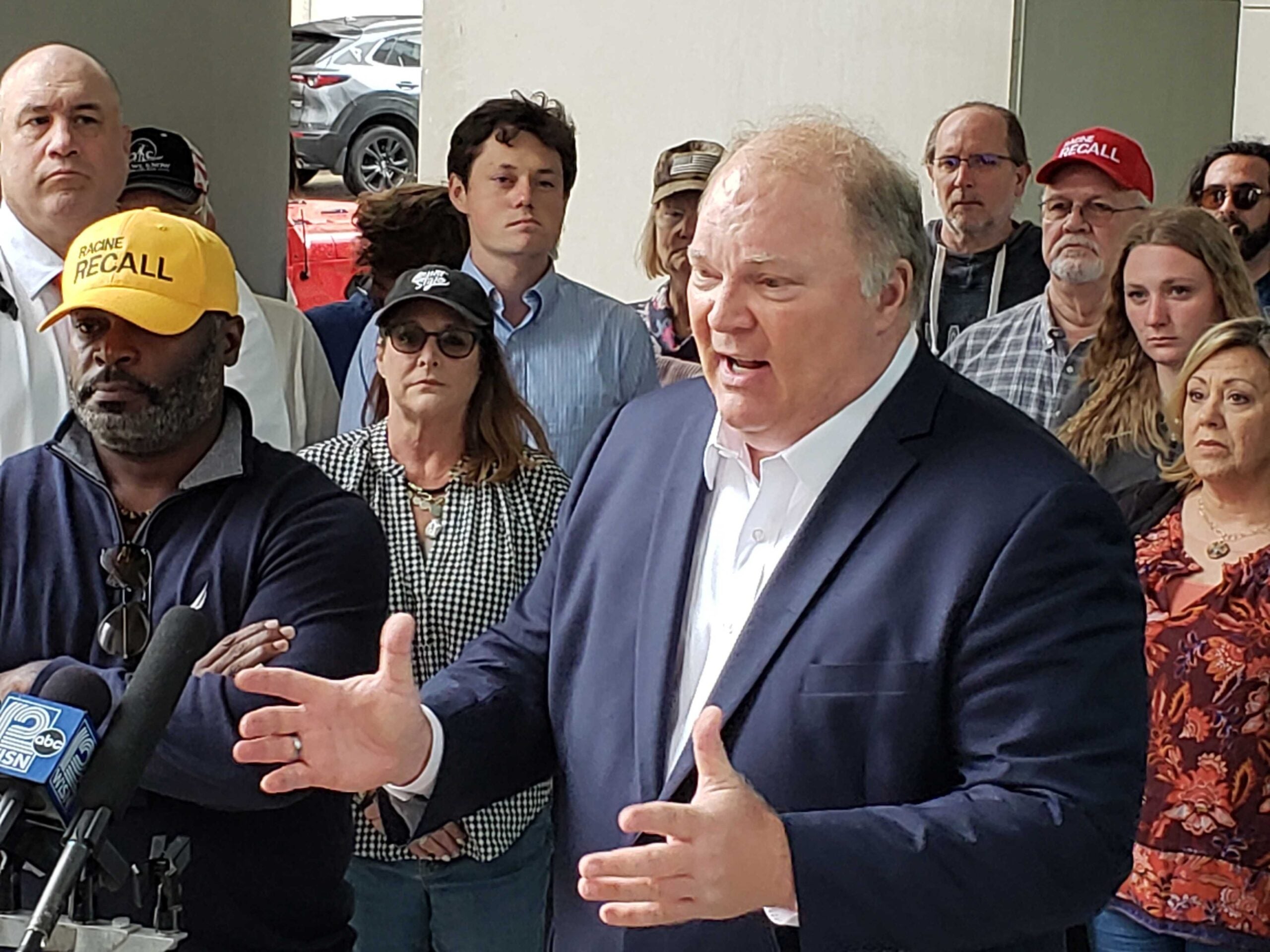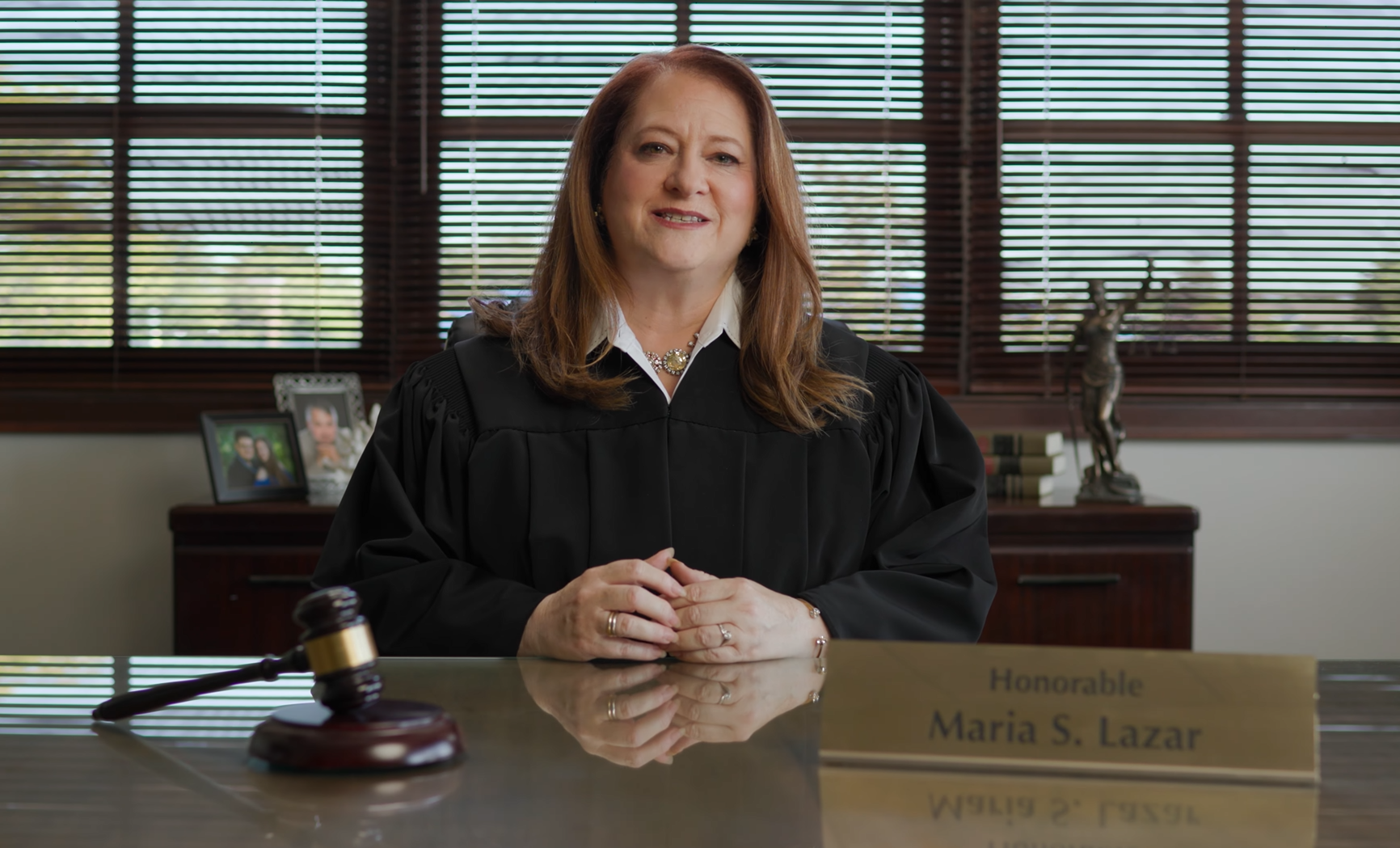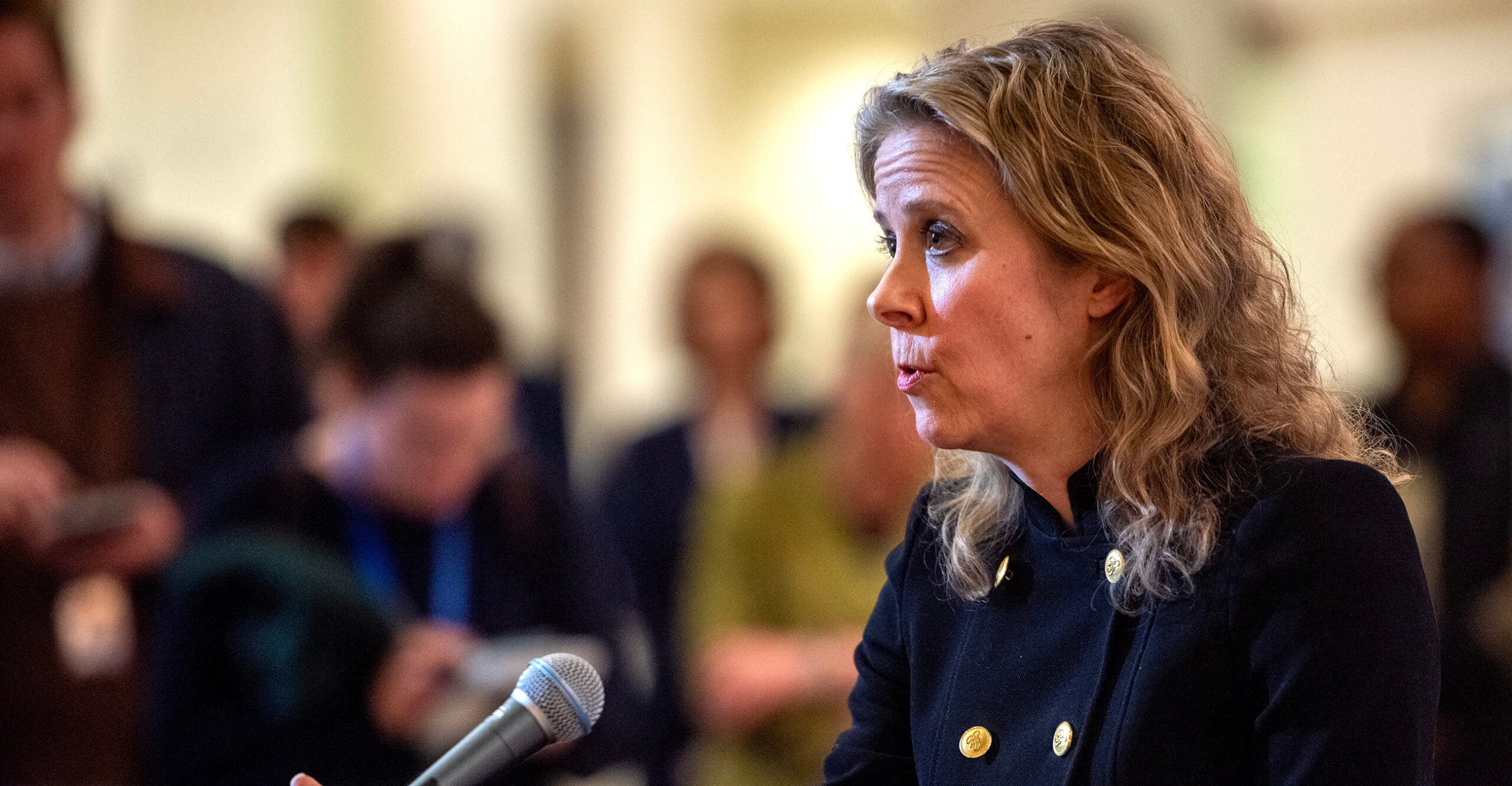In his very first TV ad, for his first ever campaign, Wisconsin Supreme Court Justice Dan Kelly introduced himself to voters as kind of a nerd.
Not just any nerd, mind you. A law nerd. Someone who reads statutes for fun, who pauses to admire a framed copy of the U.S. Constitution, whose kids think that he’s a “great judge” and an “amazing dad,” but “not exactly exciting.”
While the ad is part tongue-in-cheek, there’s an element of truth to it. Kelly is putting himself out there to try to connect with voters. Despite serving on the state Supreme Court for nearly four years, running for office is new for him.
News with a little more humanity
WPR’s “Wisconsin Today” newsletter keeps you connected to the state you love without feeling overwhelmed. No paywall. No agenda. No corporate filter.
He’s an incumbent justice, but it’s because he was appointed to the court by former Republican Gov. Scott Walker in 2016. In an officially nonpartisan race, Kelly is the candidate supported by Republicans.
Kelly downplays those ties and says what people should really know about him as he faces off against Dane County Judge Jill Karofsky is that voters are the ones in charge of the court.
“I think what they should know is that I understand that they’re the boss and I’m the servant,” Kelly said in an interview.
But the rest of his message is familiar to Republican voters, who’ve helped conservatives like Kelly cement a 5-2 majority on the court. And Kelly has reached out to those voters in familiar ways.

Courtesy of Daniel Kelly’s campaign
Chosen By Walker
When Walker appointed Kelly in 2016 to fill the Supreme Court seat vacated by retiring Justice David Prosser, there was a lot of competition for the opening.
Kelly was one of 10 finalists. Others included longtime GOP aide and Public Service Commissioner Ellen Nowak, former Walker aide (and now Justice) Brian Hagedorn and former Republican lawmaker and Appeals Court Judge Mark Gundrum.
Unlike some of the others, Kelly had no judicial experience. Still, he rose to the top.
“He’s incredibly smart, incredibly hard-working,” said fellow conservative Supreme Court Justice Rebecca Bradley, another Walker appointee who won her own 10-year term in 2016. “Working on the court for him — and this is the same for me — it’s kind of a dream job.”
Kelly, who had a long career in private practice, got to know Bradley when they were active in the Milwaukee chapter of the Federalist Society, the conservative legal organization. By the time of his appointment, he’d made a name for himself in other ways.
Wisconsin Public Radio, © Copyright 2026, Board of Regents of the University of Wisconsin System and Wisconsin Educational Communications Board.






